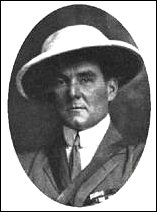Alex Mar reports on the efforts of Subcomandante Morcos to creat a new revolutionary literature in today's Salon, and is brutally honest about the results. But if you're inclined, check out the La Jornada newspaper online (Spanish only, and one of my favorite Mexican newspapers), for more background and atmosphere:
Amusing as the image is, it touches on something: What does it mean for a revolutionary to turn to literature? Beyond his "poetic" communiqués, Marcos has anthologized short stories, publishing "Our Word Is Our Weapon" at the height of the movement, when the Zapatistas awaited their hearing with Congress in 2001. And "el Sup," of course, is not the first radical leader to do so: take Saddam Hussein's allegorical novels that pit glorious Iraq against the corrupt Western powers (not to mention his more recent poetry from a maximum-security cell). Can such scribblings amount to more than ego fodder? Or are they the ultimate symptom of a revolutionary in winter, nostalgic for the good old days, spinning a fantasy to make up for his lame-duck reality?
But let's, for a moment, give Marcos the benefit of the doubt and assume that he is a true believer in the suggestive powers of fiction, in the possibility that a crime novel may be the most effective means of insinuating propaganda into the popular imagination. Can fiction still pull off such a feat? Marcos is one of the great propagandists of our time, and, according to Hernández, La Jornada quickly garnered a 25 percent rise in its Sunday readership with the inception of "Muertos Incomodos." The New York Times and the Guardian reported on the literary project as international news.
But while packed with venomous references to neoliberalismo, globalization, and those who "disappeared" during the anti-leftist "dirty war" of the '70s, the wrench in the book is literary: It's dismal. Its chapter-by-chapter production leaves the story without clear structure and intent, and it's as uneven as the talents of its authors, with Taibo's installments miles ahead. Despite his painfully clear aspirations, Marcos -- who has at this point written chapters 1, 3, 5, 7 and 9 (out this coming Sunday) -- is no fiction writer. Rather than flesh out his hero, Marcos tends to prefer introducing new characters just for the hell of it, as with the brief appearance of a sassy transvestite mechanic. Generally speaking, his prose reads as if it has been written by a philosophy professor turned resistance leader, which is to say it begs for an editor. To put it kindly.
Subscribe to:
Post Comments (Atom)

No comments:
Post a Comment